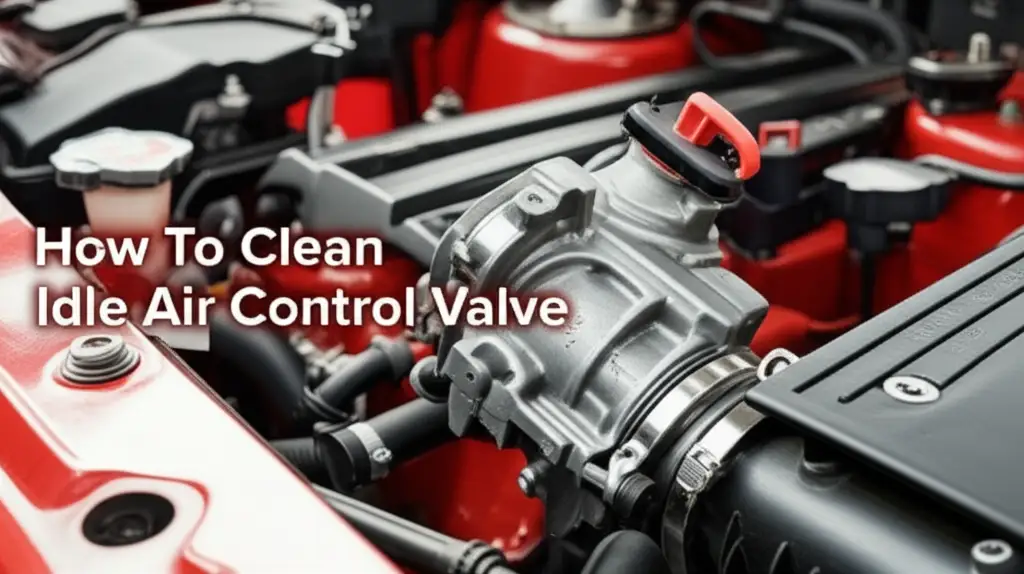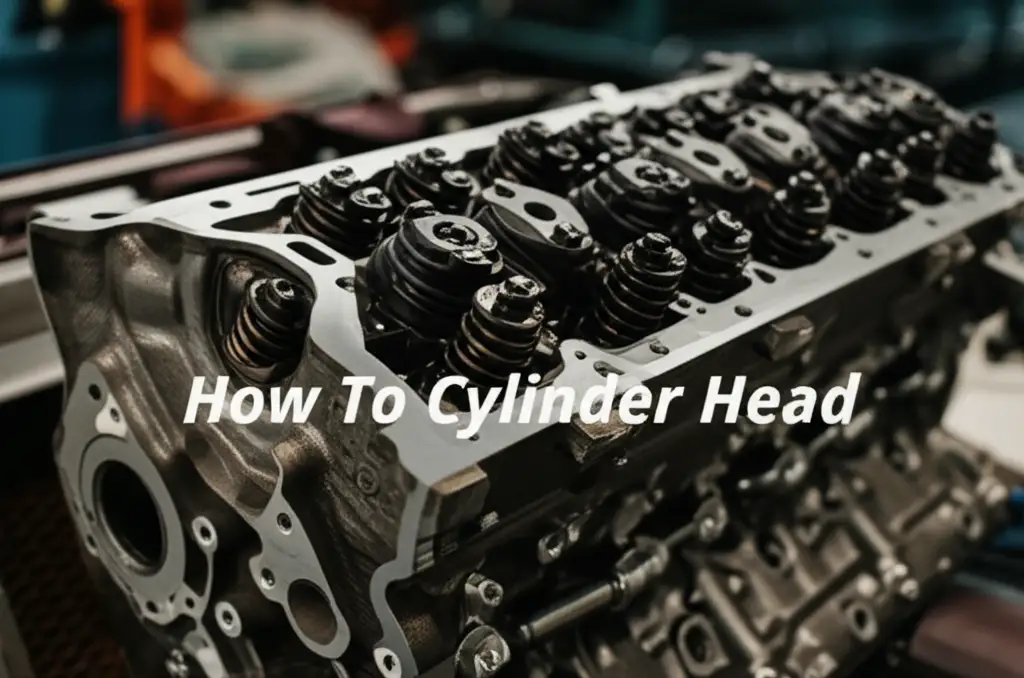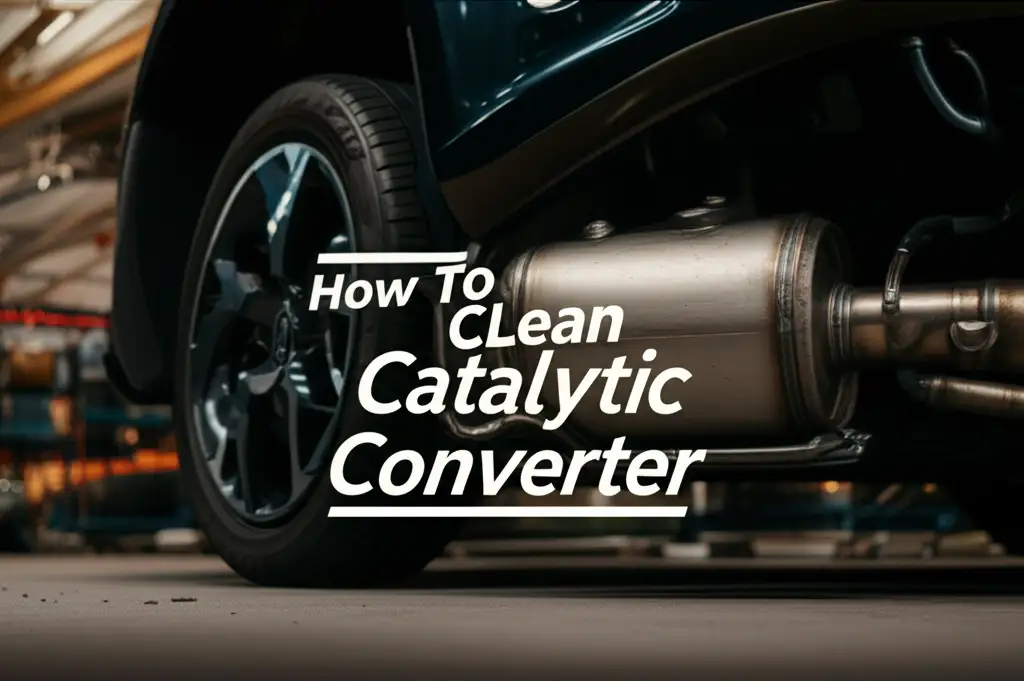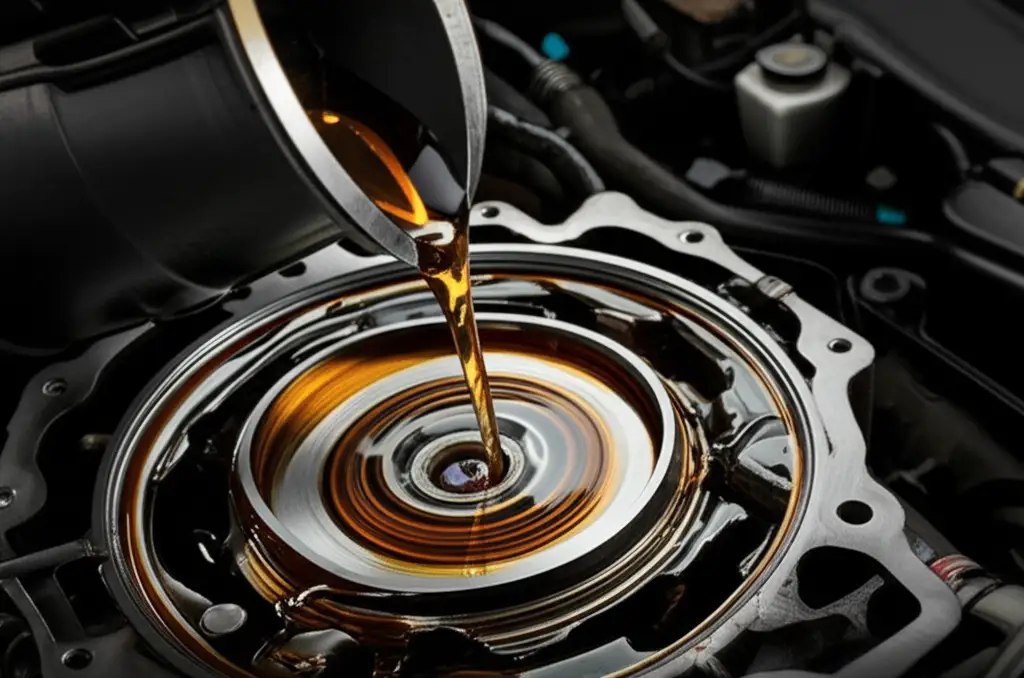· Automotive Maintenance · 12 min read
How To Clean Piston Heads
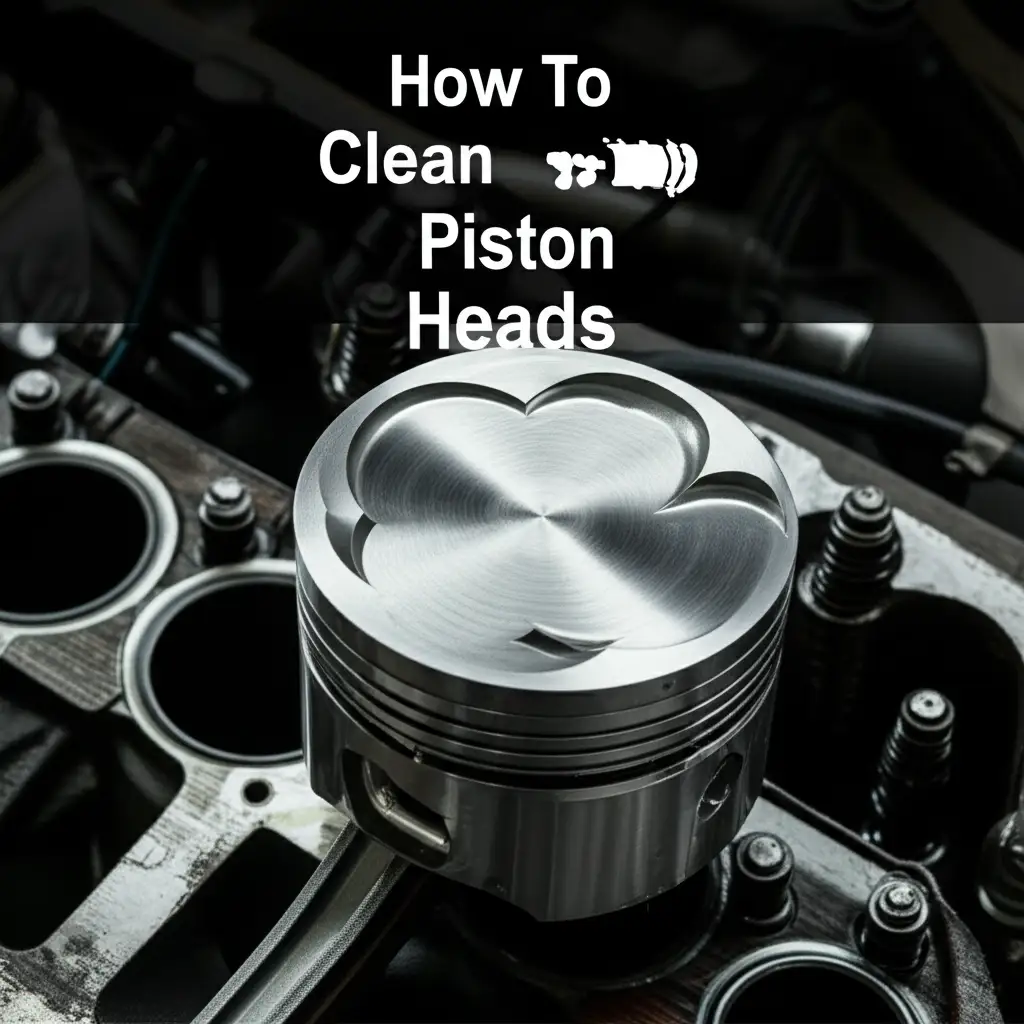
Restore Engine Power: How To Clean Piston Heads
Do you feel your car losing its punch? Is your engine not as smooth as it once was? The culprit might be carbon buildup on your piston heads. Over time, combustion byproducts leave behind stubborn deposits, coating these vital engine parts. These deposits hurt engine performance and reduce fuel economy.
Learning how to clean piston heads is a key part of deep engine maintenance. This guide will walk you through everything you need to know. We cover the symptoms of dirty pistons, the right tools to use, and step-by-step cleaning methods. You will learn how to restore your engine’s efficiency and power. Get ready to give your engine the detailed care it needs.
Takeaway
Cleaning piston heads is vital for engine health.
- Carbon buildup reduces power and efficiency.
- You can use chemical or mechanical methods to clean pistons.
- Proper tools and safety steps are necessary.
- Regular maintenance prevents future deposits.
Cleaning piston heads involves removing carbon deposits using chemical solvents or mechanical scraping. This process restores engine compression, improves fuel efficiency, and eliminates performance issues like misfires or knocking. You can choose methods for disassembled or assembled engines, depending on your skill and the deposit severity.
Why Cleaning Piston Heads Matters for Your Engine
Imagine your engine working hard every day. Over thousands of miles, small bits of unburnt fuel and oil collect inside. These bits stick to your piston heads and combustion chambers. This buildup is called carbon deposit.
Carbon deposits hurt your engine’s operation. They make the combustion chamber smaller. This reduces engine compression. Carbon also absorbs fuel, leading to less efficient burning. This means your engine wastes more fuel and produces less power. Cleaning these deposits is important. It helps your engine run like new.
Dirty piston heads can cause many problems. You might notice your car feels sluggish or lacks acceleration. Fuel economy often drops significantly. In severe cases, carbon buildup causes “pre-ignition” or “engine knocking.” This happens when fuel ignites too early due to hot carbon spots. This damages engine components over time. Removing carbon helps prevent these issues.
A clean piston head ensures optimal combustion. It helps your engine use fuel efficiently. This leads to better gas mileage and more horsepower. Cleaning also extends the life of your engine. It prevents stress on parts from improper burning. Keeping your pistons clean is an investment in your vehicle’s health.
Identifying When Your Piston Heads Need Cleaning
Your car gives you signs when its piston heads collect too much carbon. Knowing these signs helps you act early. This saves you from bigger engine problems later. Pay attention to how your car drives daily.
One common sign is a drop in engine power. Your car might struggle to accelerate. It may feel sluggish on hills. Another clear indicator is poor fuel economy. If you are filling up your tank more often, carbon deposits could be the reason. The engine cannot burn fuel efficiently with carbon buildup.
Engine knocking or pinging noises also point to dirty pistons. These sounds occur during acceleration. They mean fuel ignites before the spark plug fires. This “pre-ignition” is dangerous for your engine. Misfires are another symptom. The engine might shake or hesitate. Black smoke from the exhaust also indicates incomplete combustion. This comes from excess carbon.
You can also check for deposits during other maintenance. If you remove the cylinder head for repairs, you will see the piston tops. A professional mechanic can use a borescope. This small camera goes into the spark plug hole. It lets them see the piston crowns without taking apart the engine. Regular checks help keep your engine in top shape.
Essential Tools and Materials for Piston Head Cleaning
Cleaning piston heads requires specific tools and materials. Having the right equipment ensures a safe and effective cleaning process. Prepare everything before you start the job. This prevents delays and helps you work efficiently.
First, prioritize safety gear. You need chemical-resistant gloves to protect your hands. Eye protection, such as safety goggles, is crucial. You must shield your eyes from chemical splashes and debris. Work in a well-ventilated area to avoid inhaling harmful fumes. A respirator mask offers extra protection.
For chemical cleaning, you will need strong solvents. These include specialized decarbonizing agents. Brake cleaner or carburetor cleaner can also dissolve carbon. Choose products designed for internal engine components. For mechanical cleaning, gather non-abrasive tools. Plastic scrapers help remove loose carbon. Brass brushes can scrub stubborn deposits without scratching metal. Do not use steel wire brushes. They scratch vital engine surfaces.
You also need a shop vacuum to remove loose carbon particles. Shop rags or microfiber cloths help wipe surfaces clean. A spray bottle can apply some cleaners. If you are disassembling the engine, you need a wrench set and a torque wrench. These ensure proper reassembly. You might also need a gasket scraper for old gasket material. Remember, cleaning piston rings often happens with piston heads. Consider what you need to clean piston rings while planning your work.
Step-by-Step Guide: Cleaning Piston Heads (Engine Disassembled)
Cleaning piston heads with the engine disassembled offers the most thorough clean. This method lets you directly access the piston crowns. It ensures complete carbon removal. Always put safety first and follow your vehicle’s service manual.
Start by carefully removing the cylinder head. This exposes the piston tops. Place rags or paper towels around the open cylinder bores. This prevents carbon bits from falling into the crankcase. Make sure the piston you are cleaning is at the top of its stroke. This protects the cylinder walls.
Next, apply a carbon-dissolving cleaner directly to the piston head. Follow the product instructions for soaking time. Some cleaners need to sit for several minutes or even hours. This softens the hard carbon deposits. You can also clean carbon from other parts, like how to clean piston rings without removing them if they are still attached.
After soaking, begin mechanical removal. Use a plastic scraper or a brass brush. Gently scrape and brush the softened carbon. Work slowly and carefully. Do not use metal scrapers or wire brushes on the piston crown. These tools can scratch the piston surface. Scratches weaken the piston and create new spots for carbon to stick. Use a shop vacuum to suck up loosened carbon particles. Wipe the piston head clean with a shop rag. Repeat the cleaning process if stubborn deposits remain. Ensure the piston surface is smooth and clean before reassembling the engine.
Chemical Cleaning Methods for Piston Heads (Engine Assembled)
You can clean piston heads without taking the engine apart. These methods use chemical cleaners. They are less invasive than full disassembly. They work by dissolving carbon deposits. These methods can improve engine performance without major repairs.
One common method uses fuel system cleaners. You add these cleaners directly to your fuel tank. The cleaner then mixes with the fuel. As the engine runs, the treated fuel reaches the combustion chambers. The chemicals slowly dissolve carbon buildup on the piston heads and valves. This method is easy to use. It is best for light to moderate carbon buildup. Using a good fuel cleaner regularly helps prevent severe carbon accumulation.
Another effective method involves intake manifold cleaning sprays. Products like Seafoam or similar decarbonizers are sprayed directly into the engine’s intake. The engine must be running for this process. The spray vaporizes and travels into the combustion chambers. It breaks down carbon deposits on piston tops and valves. Follow product instructions carefully. Too much cleaner too fast can hydro-lock the engine. This method often produces a lot of exhaust smoke. The smoke contains the burned-off carbon.
Professional services offer more powerful chemical cleaning. Walnut blasting is one such method. It uses fine walnut shells blasted at high pressure. This physically removes carbon without harsh chemicals. It is very effective for heavy carbon buildup, especially in direct injection engines. This service requires specialized equipment. It is usually done by experienced technicians. While cleaning piston heads, remember to also consider how to clean piston rings without removing them, as these chemicals might assist in that as well.
Safety Precautions and Best Practices for Piston Head Cleaning
Cleaning piston heads involves working with engine components and chemicals. Following safety precautions is critical. It protects you and your engine. Never rush the process. Careful work prevents damage and ensures good results.
Always wear proper personal protective equipment (PPE). This includes chemical-resistant gloves and safety glasses. A respirator mask protects your lungs from fumes. Work in a well-ventilated area. Open garage doors and use fans if possible. Chemical fumes can be harmful if inhaled in closed spaces.
Be extremely careful with chemical cleaners. Read the product labels thoroughly. Understand the instructions and warnings. Avoid skin contact with cleaners. If skin contact occurs, wash the area immediately with soap and water. Never mix different cleaning chemicals. This can create dangerous reactions. Store chemicals safely away from children and pets.
When performing mechanical cleaning, be gentle. Do not use abrasive tools like steel wire brushes. These can scratch or damage the piston surface. Scratches create weak points and can lead to future problems. Protect other engine components. Cover cylinder walls and bearings with rags if the engine is disassembled. This prevents carbon debris from entering critical areas. Ensure all carbon is removed before reassembly. Use a torque wrench for correct bolt tightening during reassembly. This prevents leaks and ensures engine integrity. Properly disposing of waste materials is also important. This includes used rags and chemical residues.
Maintaining Clean Piston Heads: Prevention is Key
Keeping your piston heads clean is an ongoing process. Once you have cleaned them, implement practices to prevent future carbon buildup. Prevention saves you time and money in the long run. It also helps your engine run smoothly for many years.
One simple step is to use high-quality fuel. Premium fuels often contain detergents. These detergents help prevent carbon deposits from forming. They also clean existing light deposits. Regular use of good fuel reduces the need for deep cleaning. Always follow your car manufacturer’s fuel recommendations.
Regular oil changes are also vital. Dirty engine oil contributes to carbon buildup. Oil degrades over time and loses its ability to lubricize and clean. Fresh, clean oil reduces combustion byproducts. It keeps engine internals cleaner. Use the correct type and viscosity of oil for your vehicle. Follow the recommended oil change intervals. You might also consider specific oil additives that help keep your engine clean.
Driving habits also affect carbon buildup. Short trips and stop-and-go driving increase deposit formation. The engine does not get hot enough to burn off carbon effectively. Taking your car for longer drives at highway speeds helps. This allows the engine to reach optimal operating temperature. It burns off some existing carbon. Periodically using a good fuel system cleaner helps too. This maintains the cleanliness of your pistons and can even help to clean piston rings without removing them. Consistent maintenance prevents severe carbon issues.
FAQ Section
How often should I clean piston heads?
The frequency depends on your driving habits and fuel type. For most cars, deep cleaning piston heads is not a regular maintenance item. If you use good fuel and oil, you might only need it every 60,000 to 100,000 miles. Signs like reduced power or knocking indicate it’s time.
Can I clean piston heads without removing the engine?
Yes, you can use chemical methods to clean piston heads without disassembling the engine. Fuel system additives and intake manifold cleaners are effective for this. These methods are less invasive. They work best for preventing buildup or light deposits. For heavy carbon, engine disassembly might be necessary.
What causes carbon buildup on piston heads?
Carbon buildup results from incomplete combustion of fuel and oil. Unburnt particles stick to the piston surface. Factors like short trips, low-quality fuel, worn piston rings, and rich air-fuel mixtures contribute to this. It is a natural byproduct of the combustion process over time.
What happens if I do not clean my piston heads?
Not cleaning piston heads leads to several engine problems. You will experience reduced engine power and poor fuel economy. Engine knocking or pinging noises might occur. In severe cases, carbon buildup can cause misfires or even engine damage. It reduces engine lifespan.
Are chemical cleaners safe for my engine?
Most reputable chemical cleaners are safe for engines when used as directed. They are formulated to dissolve carbon without harming metal components. Always follow the product instructions carefully. Avoid over-saturating the engine with cleaner. Use in a well-ventilated area to ensure safety.
How do I know if my engine needs piston head cleaning?
Listen to your engine and note its performance. Symptoms include reduced acceleration, lower fuel efficiency, engine knocking, or misfires. A mechanic can also inspect your pistons with a borescope camera. This helps confirm the presence of significant carbon deposits.
Conclusion
Cleaning piston heads is a crucial step for maintaining your engine’s health. You now understand why carbon buildup is a problem. You also know the signs that indicate your pistons need attention. Whether you choose to tackle the job yourself with a disassembled engine or opt for chemical treatments, you have the knowledge. Proper tools and safety measures are vital for success.
By keeping your piston heads clean, you restore lost power and improve fuel efficiency. You also extend the life of your engine. Regular maintenance and good driving habits help prevent future carbon accumulation. Give your engine the care it deserves. It will reward you with reliable performance and a smoother ride for years to come.
- piston cleaning
- engine decarbonization
- carbon removal
- engine performance
- automotive repair

